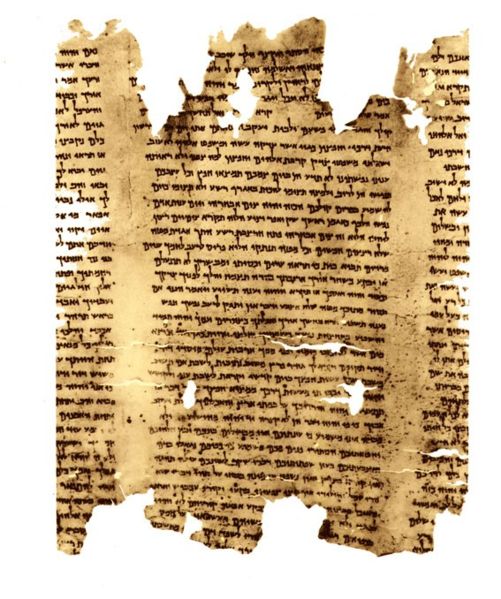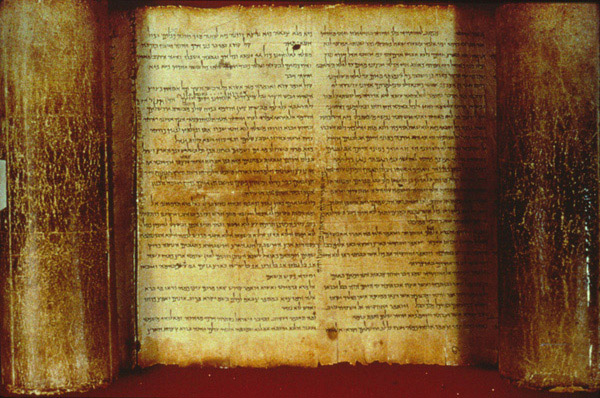Isaiah the Prophet, 8th century BCE
“The prophecies of Isaiah son of Amoz, who prophesized concerning Judah and Jerusalem in the reign(s) of …. Hezekiah, king(s) of Judah” (Isaiah 1-1)
As the opening verse of the Book of Isaiah proclaims, Isaiah prophesied during the reign of Uzziah, Jotham, Ahaz, and Hezekiah, kings of Judah. During this time the region of Palestine and its surrounding nations was undergoing a shift in political power. The political reality of the late ninth and early eighth centuries in the Syria-Palestine region was characterized by continual war between Aram (Syria) and Israel (the Northern Kingdom), in which Judah was occasionally involved. However, with the accession of Tiglath-pileser III, king of Assyria, to the throne in 744, Aram and Israel were forced to unite against the new emerging superpower. Over the next decade Assyria steadily gained power, securing and enlarging its borders. Aram attempted to create an anti-Assyrian coalition, which included Israel and Tyre, but in 733 Assyria quelled any such attempt, reducing Aram to a province under the Assyrian Empire. Assyria also attacked Israel at this time, conquering much of the area and shrinking the kingdom to the city of Samaria and the surrounding region. Israel existed as a quasi-independent state for a decade, until its exile in 722 (2 Kgs. 17-1-6; 18-9-10). Throughout this period Judah was not a significant player in international politics, paling in comparison to the larger and more powerful Northern Kingdom.
Isaiah’s first intervention in the political arena occurred in 734 (Isa. 7-9; cf. 2 Kgs. 16; 2 Chr. 28). Tiglath-pileser had seized control of the Mediterranean coastal route as part of Assyria’s imperialist agenda. In response, Aram and Israel (with Philistine and Edomite support) attacked Judah, presumably in an attempt to replace Ahaz, the Judean king, with a ruler in favour of revolt. Isaiah responds by advocating trust in God, who would save Judah both from the weak kingdoms of Aram and Israel, as well as from the Assyrian Empire. In reality, Tiglath-pileser returned in 733 on another western campaign. He attacked Damascus, eventually destroying the city, and significantly reduced Israel, ultimately leading to the kingdom’s collapse in 722.
Isaiah’s second interaction with the political realm occurred in the period of 713-711 (Ch. 20). Sargon II (722-705), then King of Assyria, returned to the region to deal with the uprising of the Philistine city of Ashdod. At this point Isaiah masquerades as a prisoner of war, conveying to the people the folly in rebelling against Assyria.
The prophet’s final political intervention took place in 701, during the Assyrian campaign against Palestine (Ch. 36-37). The death of Sargon in 705 sparked revolt in many parts of the Assyrian Empire. Responding to the danger, Sargon’s successor, Sennacherib (704-681), attacked Palestine. Sennacherib devastated Judah, capturing all of its fortified cities and forcing Judah to pay tribute. It was at this point that Isaiah stepped in, reassuring Hezekiah that he need not be troubled by the Assyrian threat. In fact, Sennacherib did not succeed in wholly vanquishing Judah and instead ended up retreating from the region.
Isaiah’s prophecies consistently focus on trusting in God, rather than allying with untrustworthy nations. It is a theme that recurs throughout the Later Prophets, and one which the people of Israel contended with on a regular basis as their political situation worsened. In this context, idolatry and alliances were two offshoots of the same root problem. Both stemmed from a lack of trust in God, be it in the political or spiritual realms. In fact, adopting a nation’s god represented an acknowledgement of its power, such that the political and spiritual realms were closely connected.
Tziporah Levine
See also-
- Quotations from the Book of Isaiah
- Isaiah 55-56
- Biblical History- From Isaiah to Jeremiah, c. 700-586 BCE, Steven Feldman, COJS.
- Isaiah and Hezekiah 715-687, Teddy Kollek and Moshe Pearlman, Jerusalem- Sacred City of Mankind, Steimatzky Ltd., Jerusalem, 1991.
- Hosea and Isaiah, Christine Hayes, Open Yale Courses (Transcription), 2006.
- Perspectives on the Exile (Jeremiah, Ezekiel and 2nd Isaiah), Christine Hayes, Open Yale Courses (Transcription), 2006.
- The Isaiah Texts, Lawrence H. Schiffman, Reclaiming the Dead Sea Scrolls, Jewish Publication Society, Philadelphia 1994.
- Pesher Isaiah, Lawrence H. Schiffman, Reclaiming the Dead Sea Scrolls, Jewish Publication Society, Philadelphia 1994.
- Isaiah Scroll, The, Francolino J. Goncalves, Anchor Bible Dictionary (ed. David Noel Freedman), Doubleday, New York 1992.
- Commentary on Isaiah Chapters 1-12, Tziporah Levine, COJS.
- Commentary on Isaiah Chapters 13-27, Tziporah Levine, COJS.
- Isaiah Inscription on the Western Wall, 5th century CE
- Isaiah, Michelangelo Buonarroti, Sistine Chapel, 1509.
- The Prophet Isaiah, Raffaello Sanzio, Church of Sant’Agostino, Rome.
- The Isaiah Wall at the United Nations, New York
- The Great Isaiah Scroll Online






